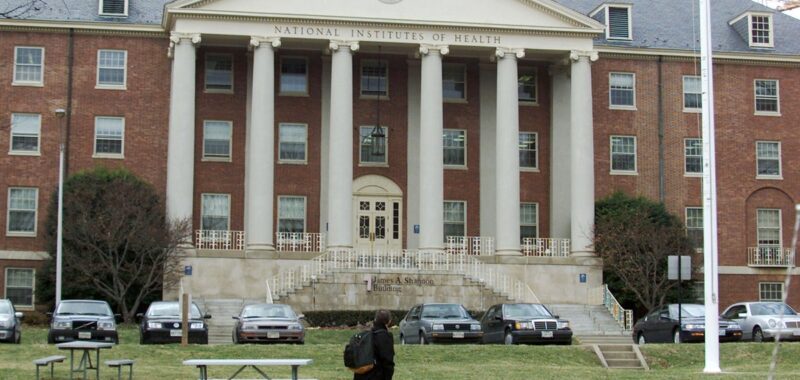Trump Administration Cancels NIH Scientific Integrity Policy
The National Institutes of Health said it pulled the policy because of language on diversity and inclusion, in line with directives from the Trump administration

CLIMATEWIRE | The National Institutes of Health has rescinded a scientific integrity policy intended to protect research and communications from political interference, citing the policy’s commitment to diversity and inclusion.
The policy was rescinded Friday evening to “ensure alignment with the administration’s priorities,” according to a notice posted by NIH. The notice says NIH, which is the largest source of funding for medical research in the world, will now follow the Department of Health and Human Services’ broader scientific integrity policy.
NIH, the notice says, “remains committed to upholding the principles of scientific integrity.”
On supporting science journalism
If you’re enjoying this article, consider supporting our award-winning journalism by subscribing. By purchasing a subscription you are helping to ensure the future of impactful stories about the discoveries and ideas shaping our world today.
The NIH policy, which was last updated during the final months of the Biden administration, included a commitment that “diversity, equity, inclusion and accessibility (DEIA) are integral components of the entire scientific process.”
“Attention to DEIA can improve the success of the scientific workforce, foster innovation in the conduct and use of science, and provide for more equitable participation in science by diverse communities,” the policy said.
No such diversity language is included in the HHS policy NIH is now meant to follow.
HHS spokesperson Andrew Nixon said the policy was pulled due to the diversity language. The NIH policy, he said, had been “weaponized” by the Biden administration to “inject harmful DEI and gender ideology into research.”
Rescinding the policy, he said, “will allow NIH to restore science to its golden standard and protect the integrity of science through the HHS policy.”
The move has alarmed scientists and public health experts who argue that the Trump administration has already politicized science by eliminating HHS offices focused on health equity and climate change, canceling research grants on racial health disparities and other topics the administration does not like, and removing health data from the HHS website.
“When someone rolls back a policy, the natural question is if they are doing that because they know they would be violating it were it to remain in place,” said Liz Borkowski, director of health policy management at the Milken Institute School of Public Health at George Washington University.
The agency’s rescission of its scientific integrity policy came during NIH Director Jay Bhattacharya’s second week on the job.
Bhattacharya himself has conducted federally funded research into racial health disparities, including authoring a 2012 paper that found black patients had higher mortality rates following heart transplants than white patients. During his confirmation hearing, Bhattacharya told senators that he would not allow NIH to be influenced by President Donald Trump’s executive orders to restrict funding and communications for initiatives that promote diversity, inclusion and equity.
“The health needs of minorities in this country are a vital priority for me,” he told Sen. Angela Alsobrooks (D-Md.). “I don’t see anything in the presidential orders that contradict that.”
Environmental and climate health researchers who receive funding from NIH are already fearful that the Trump administration could target their grants. Many NIH grants for climate-related research examine how the health effects of climate change, like heat-related illnesses, can have outsize impacts on communities of color and marginalized communities.
Rescinding the NIH scientific integrity policy “puts all science at risk,” said Jennifer Jones, director for science and democracy at the Union of Concerned Scientists.
In the last week alone, she said, HHS cut 10,000 staff members and forced out the Food and Drug Administration’s top vaccine official. In his resignation letter, Dr. Peter Marks accused HHS Secretary Robert F. Kennedy Jr. of pushing misinformation about vaccine safety as measles continues to spread across the country.
“It has become clear that truth and transparency are not desired by the secretary, but rather he wishes subservient confirmation of his misinformation and lies,” Marks wrote.
Marks’ departure underscores the need for scientific integrity policies throughout each of HHS’s agencies, Jones said, arguing that workers at NIH should be able to report accusations of political interference to integrity officials within their own agency.
“We need policies in place to protect the scientists who remain at the agency and who remain funded, and to protect us from this conspiracy-minded administration,” she said.
Reprinted from E&E News with permission from POLITICO, LLC. Copyright 2025. E&E News provides essential news for energy and environment professionals.

